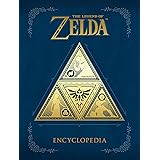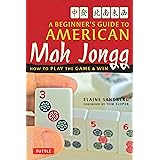Revisiting the Iconic PSP Launch Lineup: A Look Back at Handheld History
The original PlayStation Portable, or PSP, carved out an impressive legacy in the annals of handheld gaming. As the video above eloquently demonstrates, Sony’s ambitious portable console introduced a level of graphical fidelity and multimedia functionality previously unseen in the mobile entertainment space. Released in the US in March 2005, the PSP quickly established itself as a formidable contender, ultimately selling over 80 million units worldwide during its remarkable ten-year lifespan. This innovative device, truly the “little handheld that could,” promised console-quality gaming on the go, a revolutionary concept for its time.
Yet, the journey was not without its distinctive quirks. The PSP embraced Sony’s penchant for proprietary hardware, featuring the Universal Media Disc (UMD) format for games and movies, alongside the Memory Stick Duo for storage. While UMDs allowed for impressive game sizes, they also presented a unique physical media challenge, often likened to “mini-discs in a plastic bomber jacket.” In contrast, the internal storage was notably expensive, pushing many users towards external solutions. Despite these design decisions, the PSP captivated audiences, especially with its ability to play PS1 Classics digitally, transforming models like the PSP Go into veritable havens for beloved titles such as Final Fantasy and Metal Gear Solid.
Diving Into the US PSP Launch Lineup: A 2005 Retrospective
Examining the 2005 US PSP launch lineup offers a fascinating glimpse into Sony’s strategy for its groundbreaking handheld. This initial wave of games aimed to showcase the PSP’s diverse capabilities, ranging from action-adventure to sports simulations and innovative puzzle experiences. However, acquiring all these original UMD titles today can be both costly and challenging, prompting many enthusiasts, including the video’s host, to revisit these classics through modern emulation. Let us now delve deeper into each of these inaugural PlayStation Portable launch titles, exploring their reception and lasting impact.
Ape Escape On the Loose: A Colorful, Yet Tricky Start
Our journey through the PSP launch lineup begins with Ape Escape On the Loose, a vibrant remake of the 1999 PlayStation 1 classic. This game tasked players with capturing mischievous simians using an array of gadgets, including a lightsaber and a net. Critically, it scored 66% on Metacritic, reflecting a mixed reception. Many reviewers specifically lamented the absence of a second analog stick on the PSP, a hardware limitation that made camera control surprisingly difficult for a 3D platformer and posed a significant “sticking point” for players accustomed to the original’s fluidity. Despite this setback, its unique premise still held considerable appeal.
Darkstalkers Chronicle: The Chaos Tower: A Portable Fighting Masterpiece
For fighting game aficionados, Darkstalkers Chronicle: The Chaos Tower arrived as an unexpected triumph. This portable fighting game, a port of Vampire Chronicles, allowed players to select from various fighting styles across the entire Darkstalkers arcade series. Awarded an impressive 74% on Metacritic, it garnered substantial praise from critics. GameSpot even hailed it as “probably the best portable fighting game ever made” at the time, underscoring its deep mechanics and engaging character roster. This title showcased the PSP’s potential for delivering intricate, console-quality experiences within the handheld format, providing numerous “goodies” and surprisingly fascinating characters.
Dynasty Warriors: Mindless Fun on the Go
Contrary to popular belief, Dynasty Warriors for the PSP was not merely a port or a remake; it was a bespoke title designed specifically for the new handheld. This action game continued the series’ tradition of facing “endless waves of unmoving enemies,” allowing players to unleash exaggerated special attacks. While the gameplay was undeniably simplistic and often characterized by running into “dense fog” to find opponents, it held a peculiar, compelling charm. However, this simplicity and visual limitations contributed to its 62% Metacritic score. Despite the lower critical reception, many players found genuine enjoyment in its cathartic, if repetitive, combat.
Gretzky NHL: A Fast-Paced, Yet Flawed Hockey Sim
The sports genre was well-represented in the early PSP launch games, with Gretzky NHL offering a portable hockey experience. This game presented a more “sharp-edged” aesthetic compared to later console iterations. Awarded 65% on Metacritic, it proved challenging for many players due to its fast pace and a physics engine that sometimes “did its own thing.” Furthermore, the opposing team had a frustrating habit of “forgetting to play” when off-screen, creating inconsistent gameplay moments. Despite the vibrant crowd excitement, these technical issues hindered its overall immersion and appeal for a discerning player base.
Lumines: A Critically Acclaimed Puzzle Sensation
One of the true standout titles in the PSP’s inaugural lineup was Lumines, a puzzle game developed specifically for the platform. Often described as “Tetris with a cocaine habit” due to its fast-paced, rhythmic gameplay, Lumines required players to match colored squares within a grid as a vertical line swept across the stage, clearing matched tiles to the beat of an infectious soundtrack. Critics absolutely adored this innovative title, giving it a lofty 89% on Metacritic. The game’s blend of engaging mechanics, stunning visuals, and exceptional music secured its place as a classic, establishing a series that continues to release games over a decade later, with its last installment appearing in 2018.
Metal Gear Acid: An Experimental Tactical Card Game
Hideo Kojima and Konami ventured into experimental territory with Metal Gear Acid, a unique turn-based tactical card game that tested the PSP’s capabilities. While visually resembling a Metal Gear Solid game, featuring the usual geopolitical intrigues and unintelligible acronyms, its core gameplay diverged significantly. The game scored 75% on Metacritic, a respectable but not stellar showing. Its unusual card-based combat, combined with a notable lack of voice acting and a “bizarre and tedious visual novel approach to character dialogue,” presented a departure that wasn’t for every fan. Nonetheless, it served as crucial “leg work” for the infinitely more acclaimed Metal Gear Solid: Peace Walker in 2010, demonstrating the PSP’s versatility for unique genre interpretations.
NBA Street Showdown: Minimalist Basketball Action
NBA Street Showdown delivered a no-frills basketball experience focused on “mad dunks” and arcade-style gameplay. The game’s minimalist approach, offering little in the way of “bells and whistles,” resonated with some players seeking straightforward action. However, its 57% Metacritic score suggests significant shortcomings. Critics and players alike found the defending mechanics to be nearly “impossible,” although this also applied to the AI opponents, creating a somewhat balanced if chaotic experience. The inability to freely explore the arena beyond the court also contributed to its lower critical appraisal, limiting its overall replayability and depth.
Need for Speed Underground Rivals: Polished Portable Racing
Building on the success of its console counterpart, Need for Speed Underground Rivals brought the popular street racing franchise to the PSP. While it notably lacked many of the story elements and intricate polish found in the PS2 original, this PSP launch title was remarkably pretty for a handheld game. Players could customize their vehicles and engage in “naughty crime racing careers.” The game earned 74% on Metacritic, reflecting its strong visual presentation and engaging racing mechanics. Despite some compromises in narrative depth, it successfully translated the core thrill of underground racing to a portable format, offering a solid experience for racing enthusiasts.
NFL Street 2 Unleashed: A War of Confusing Attrition
NFL Street 2 Unleashed offered a stylized, arcade-focused take on American football. Despite its “hideous” intro cutscene and highly compressed visuals, even in emulation, the game maintained a surprisingly positive Metacritic score of 73%. The game attempted to provide “positive reinforcement” and “spelling encouragement” for players. However, many found the gameplay to be a “war of confusing attrition,” characterized by frantic button mashing on defense and the challenge of executing plays on offense without being overwhelmed by “giant amorphous Blobmen.” While securing a touchdown proved satisfying, the overall experience was often a chaotic and bewildering one.
Ridge Racer: Drifting into Handheld Excellence
For racing game purists, Ridge Racer on the PSP was exactly what fans expected: a visually impressive arcade racer brimming with sideways drifting action. This title truly excelled in translating the series’ signature feel to a portable console, complemented by unexpected inclusions like the full version of the classic arcade game, New Rally X. The critics “bloody loved it,” awarding it an impressive 88% on Metacritic. Its intuitive controls and immediate fun factor made it accessible for anyone to feel like a “mad Tokyo Drift lad or lass or other.” This game cemented the PSP’s capability to host top-tier arcade experiences, becoming a standout within the PSP launch lineup.
Spider-Man 2: A Web-Slinging Adventure with Compromises
Bringing a cinematic superhero experience to handhelds, Spider-Man 2 for the PSP was an ambitious port of the beloved PS2 original. While it may not have featured a truly open world, opting for smaller, set areas instead, it delivered an impressively “feature complete” offering for a portable game. This included the distinctive, “weird style of cutscenes” from its console counterpart and the “ever delightful Bruce Campbell narrated tutorial.” However, its “wonky” mechanics, including comically animated enemies, frequent climbing glitches, and “laughable fail states,” contributed to its 67% Metacritic score. Despite these issues, it still secured the 19th spot on a ranked list of Spider-Man games, suggesting its portable achievements were not entirely overlooked.
Tony Hawk’s Underground 2 Remix: Mad Stunts on Your Pedal Bike
Embracing the edgy skater and Jackass culture of 2004, Tony Hawk’s Underground 2 Remix delivered a globe-trotting skateboarding adventure that was remarkably ambitious for the PSP. Featuring Bam Margera and a host of “mad stunts,” the game boasted a more comprehensive skater creation tool than even Project 8 on PS3 several years later. Given the hardware, its scope was “really, very impressive.” Despite character models that could “look like haunted animatronics,” the game garnered 83% on Metacritic. This high score reflected its successful translation of the console experience to handheld, offering a robust and entertaining package for fans of extreme sports.
Twisted Metal Head-On: Vehicular Combat with Control Issues
The chaotic vehicular combat of Twisted Metal Head-On found its way onto the PSP, but not without its challenges. While it delivered the series’ signature blend of “angry motorists in a world where service stations sell rocket launchers,” its primary drawback was often cited as its controls. Players frequently reported “losing sight of enemies” and engaging in “blind circles” trying to locate opponents, leading to a frustrating experience. Despite a diverse cast of playable characters, including Sweet Tooth and Ghoul Rider, and a Metacritic score of 79%, the control scheme proved to be a significant barrier to consistent enjoyment, even with its minimal story. This game proved that some console experiences were inherently harder to adapt to the PSP’s unique input configuration.
Wipeout Pure: Futuristic Racing Excellence
Widely regarded as a pinnacle of the PSP launch lineup, Wipeout Pure offered a sublime anti-gravity racing experience. Often lauded as the “best series about flying tortilla chip racing there ever was,” this game delivered fast-paced futuristic courses, stunning visuals, and an exhilarating EDM soundtrack. Critics universally praised Wipeout Pure, leading to an outstanding 88% on Metacritic. Reviewers, including GameSpot, specifically praised the visuals, track designs, and called the “high-speed racing incredibly engaging and artistic on both a visual and technical level.” Taking place in the year 2197, a century after Wipeout 2097, this title demonstrated the PSP’s capacity for both graphical power and intricate, compelling gameplay, solidifying its status as an instant classic.
World Tour Soccer: A Competent, Yet Limited Football Sim
Rounding out the sports offerings, World Tour Soccer provided a “competent enough football sim” for the PSP. Featuring familiar, albeit slightly altered, team names like “Highbury” and “Manchester,” the game offered modes such as World Tournament and Euro Cup. It achieved a respectable 70% on Metacritic. The game’s challenge mode, which graded performance and was necessary to unlock additional clubs, was considered somewhat “weird” by players. While it offered moments of brilliance, like scoring “mad goals,” some found its realism a bit too unforgiving, especially when combined with grading mechanics that could feel overly critical. Despite a “wonderful day” setting, the game’s overall experience was solid but lacked the depth or innovation of other launch titles.
Reflecting on these foundational PSP launch games reveals a diverse and ambitious collection, designed to showcase the handheld’s immense potential. From groundbreaking puzzle games to solid racing simulations and experimental takes on beloved franchises, the PSP’s inaugural offerings set the stage for a truly unique era in portable gaming. Each title, with its strengths and occasional missteps, contributed to the rich tapestry of the PlayStation Portable’s early history, laying the groundwork for its enduring legacy as a powerful and beloved console.









